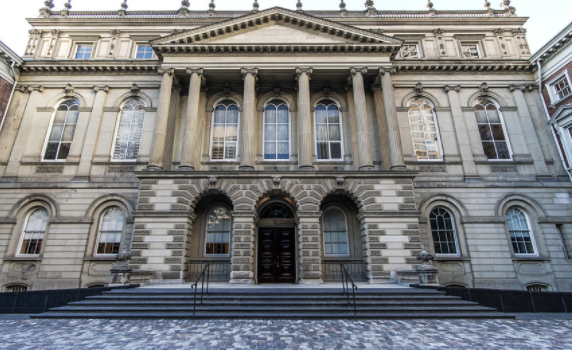Ontario’s top court has cleared the way for legal claims against the province and the Ontario Coroner's office over the handling of the 2014 death of four-year-old Brody Meekis in Sandy Lake First Nation.
In 2019, Thunder Bay Superior Court Justice John Fregeau dismissed claims by Meekis’s family that the coroner’s investigation into the child’s death from strep throat had been inadequate and discriminatory.
Fregeau concluded the coroner had met legal requirements and the family's claim had no reasonable prospect of success in a trial, striking it in its entirety.
Monday’s unanimous decision of the Ontario Court of Appeal partially overturns that ruling, opening the door for the family to proceed with claims of misfeasance in public office against the investigating and supervising coroners, and a claim of breach of section 15 of the Canadian Charter of Rights and Freedoms against the province.
Nishnawbe Aski Nation Grand Chief Alvin Fiddler welcomed the ruling, calling it a key step toward securing equitable coronial services on reserve.
"This judgment is significant as it upholds the duty of Ontario’s coroners to investigate the deaths of all children without any discrimination,” he said. “This case makes serious allegations, and I am pleased that the Court agrees that they should be heard in full, and that the law must hold public officials accountable.”
The family has alleged the decision not to visit the scene of death by the investigating coroner is part of a discriminatory pattern of inadequate coronial services provided to those living in First Nations.
If proven, the claim could give rise to a Charter damages claim.
Lawyer for the Meekis family, Julian Falconer, said Monday’s ruling highlighted a systemic failure to properly investigate deaths on reserve.
“Today’s judgment makes clear that the blanket policy of the Office of the Chief Coroner of Ontario, of failing to attend to investigate deaths in First Nations communities, is a blight on our system of justice,” said Falconer’s LLP in a statement.
“Now that the case will proceed, the Coroner’s Office will have some serious questions to answer about these discriminatory practices,” Falconer added.
Meekis died in Sandy Lake First Nation, located about 600 kilometres northwest of Thunder Bay, of complications from strep throat on May 7, 2014.
His mother had difficultly securing an appointment for Meekis in the preceding days after developing a fever and other symptoms.
Investigating coroner Dr. Wojciech Aniol decided not to attend the First Nation, instead conducting the investigation from Red Lake. Meekis’s body was then sent to a hospital in Kenora for autopsy. Aniol did not recommend an inquest into the death.
“Dr. Aniol did not take a detailed statement from any of the nurses who treated Brody before his death, nor did he fully or accurately collect or create documentation of the circumstances surrounding Brody’s death,” the Court of Appeal ruling noted. “Rather, he directed police officers to attend Brody’s home to gather evidence for the investigation.”
The coroner’s office also did not refer the case to a patient safety review committee as directed by the Ontario Coroner’s deaths under five committee, according to the ruling on the appeal.
“The nightmare of his death was made all the worse by a system that doesn’t care and by coroners who don’t do their jobs,” said Meekis’s parents, Fraser Meekis and Wawa Keno, in a statement issued by Falconer’s Monday. “Our lawsuit is meant to ensure that First Nations families living on-reserve will finally get a measure of equality and accountability.”
